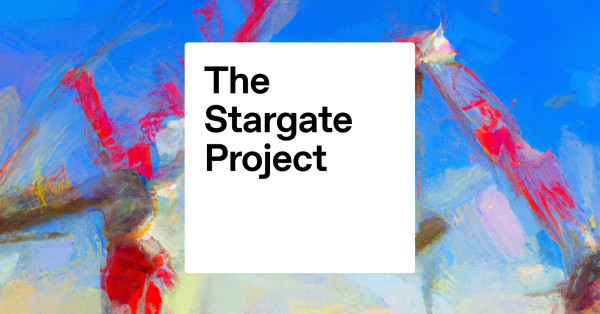Stargate: OpenAI’s Bold AI Infrastructure Vision
OpenAI’s Stargate project, a multi-phase initiative to build advanced AI infrastructure, is facing early hurdles despite a strong start. The project, designed to deliver high-performance AI data centers across the U.S. and beyond, has hit delays due to growing tariff-related economic concerns. However, even as challenges mount at home, OpenAI is doubling down on a global rollout.
Initially announced in January 2025 with support from Oracle, SoftBank, and the Trump administration, Stargate is envisioned as a $500 billion investment to meet the surging demand for compute-intensive AI workloads. But recent reporting suggests that market instability and the cost impact of tariffs are putting early momentum at risk.
Tariffs and Economic Uncertainty Slow U.S. Progress
According to Bloomberg, the first phase of Stargate, centered in Abilene, Texas, is progressing slowly. The rising cost of server racks, semiconductors, cooling systems, and other critical infrastructure components is contributing to uncertainty among investors. A report from TD Cowen cited average buildout cost increases between 5% and 15% due to tariffs.
This has made potential backers—including banks and private equity firms—more cautious. Notably, SoftBank, initially slated to be a major financial partner, has not yet finalized its investment framework. As construction costs rise and AI service competition grows more intense, the financial feasibility of large-scale U.S. data center development is under pressure.
Shifting Investment Priorities in the AI Infrastructure Race
Part of the hesitation stems from concerns around overcapacity. Tech giants like Amazon and Microsoft are reportedly scaling back their own data center construction in response to potential market saturation. This shift is creating ripple effects, particularly for large-scale projects like Stargate that require substantial capital upfront.
With cheaper AI offerings entering the market and questions arising about ROI timelines, some investors are holding back until there’s more clarity on future demand and economic conditions.
Global Expansion Strategy Gains Steam
While U.S. progress remains uncertain, OpenAI is pushing ahead internationally. The company recently launched “OpenAI for Countries,” a new global initiative under the Stargate banner. The idea is to replicate the Texas model in countries seeking to build sovereign AI infrastructure.
OpenAI plans to partner directly with governments to develop in-country data centers. These facilities will host localized ChatGPT services tailored to each nation’s language, data policies, and cultural norms. Governments would also co-invest in building capacity, which would then integrate with a broader global Stargate network.
This expansion is designed to not only extend OpenAI’s reach but also create a decentralized architecture for AI development. In this setup, data sovereignty and compliance become key selling points, especially for countries concerned about foreign control over digital infrastructure.
What “OpenAI for Countries” Offers Partners
Through the new program, OpenAI has outlined several specific offerings:
- In-country data centers: Built in partnership with local governments to ensure data remains within national borders and adheres to regional compliance frameworks.
- Localized ChatGPT services: Customized to provide education, healthcare, and public service enhancements, adapted for language and culture.
- Security & compliance controls: Investments in physical and digital security to protect AI models, ensure ethical usage, and maintain operational resilience.
The first phase of this global push targets 10 partnerships, with long-term ambitions to expand further based on demand and resources.
Partners and Roles: Oracle, SoftBank, and Beyond
While Oracle is providing backend cloud infrastructure and technical expertise, SoftBank is expected to play a funding and strategic advisory role. OpenAI, of course, supplies the AI models and development leadership.
Additional partnerships are anticipated, including with energy providers, construction firms, and semiconductor manufacturers. These relationships will be critical in scaling power-hungry supercomputing campuses that rely heavily on GPUs, efficient cooling systems, and high-density networking.
Each Stargate facility will be purpose-built for training and deploying large AI models, many of which require thousands of GPUs and massive compute cycles. This puts pressure on existing power grids and supply chains—another factor that could influence both cost and timelines.
Why Stargate Matters in the AI Infrastructure Race
The goal of Stargate is clear: to give OpenAI and its partners a leading position in the next generation of AI computing infrastructure. Traditional data centers aren’t built to handle the scale of compute power needed for generative AI, large language models (LLMs), and advanced automation.
As more industries—from healthcare and finance to defense and manufacturing—adopt AI at scale, purpose-built infrastructure will be vital. Stargate aims to fill that gap by providing high-efficiency AI supercomputing sites designed from scratch.
Each new data center is expected to add significant capacity to support training and inference workloads, reducing latency and improving performance. This is particularly relevant for real-time applications like autonomous vehicles, predictive analytics, and personalized medicine.
A Balancing Act Between National Strategy and Market Forces
OpenAI’s Stargate project sits at the intersection of geopolitics, technology, and market dynamics. Its alignment with U.S. government policy, including data sovereignty and AI leadership, adds a layer of strategic importance. However, tariffs, shifting investor sentiment, and global competition for compute resources are complicating the rollout.
The project’s ultimate success may hinge on how effectively OpenAI can balance domestic challenges with international momentum. If global partnerships move faster than U.S. deployments, it could reshape how the AI infrastructure race unfolds—and who leads it.
Stargate’s Path Forward: Overcoming Tariff Barriers with Global Strategy
Stargate is ambitious, expensive, and technically complex. Delays in the U.S. due to tariffs and economic uncertainty pose real risks, but OpenAI’s global strategy may offer a path forward. By partnering with nations eager to build their own AI capacity, OpenAI is effectively decentralizing the future of AI infrastructure.
As the first $100 billion phase unfolds in Texas and 10 more international projects loom on the horizon, Stargate remains one of the most closely watched initiatives in the AI sector. Its outcome will likely shape the competitive landscape for AI infrastructure for years to come.






















